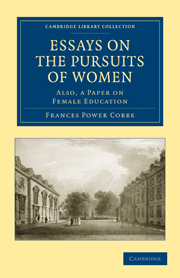WORKHOUSE SKETCHES
Published online by Cambridge University Press: 07 September 2011
Summary
Reprinted from Macmillan's Magazine, April, 1861.
It is not as to a scene of touching pathos or tragic interest that we invite our readers, in asking them to examine the condition of our Workhouses. There is pathos there, and many an unwritten tragedy. Often have we thought, in hearing the tales so simply told from many a bed of suffering, “ Talk of ‘The Romance of the Peerage!’ ‘The Romance of the Workhouse ’ would offer many a stranger and more harrowing incident.” But these interests come later. We crave the reader's attention on this plea only: It is a DUTY laid on us all. In other countries the condition of the destitute poor is mostly determined by Government. Here the whole community is answerable for their treatment. No system of democratic rule has ever been devised which, so effectually as the New Poor Law, casts the responsibility of action on the whole population, male and even female. What if it should some day be proved that under few despotisms have worse evils flourished?
In the present paper we cannot pretend to make anything like an exhaustive survey of the subject of the Poor Laws generally. We shall merely attempt a brief inquiry into three of the leading branches of workhouse arrangement, and state in conclusion the plans suggested, or in operation, for the removal of the more important evils in them.
- Type
- Chapter
- Information
- Essays on the Pursuits of WomenAlso, a Paper on Female Education, pp. 175 - 215Publisher: Cambridge University PressPrint publication year: 2010First published in: 1863



